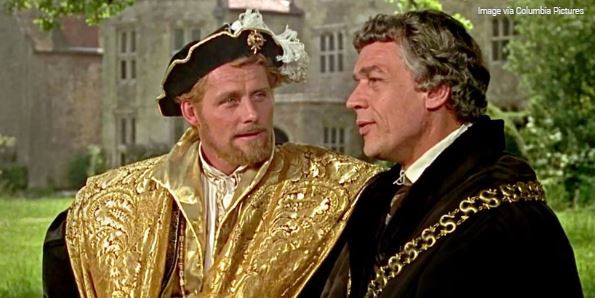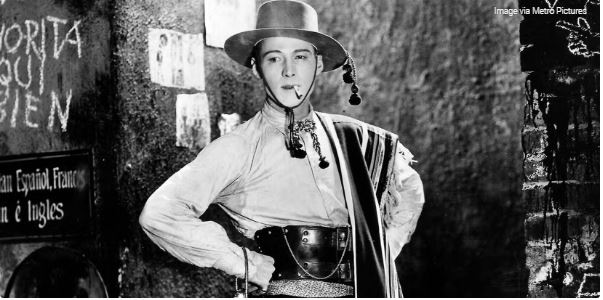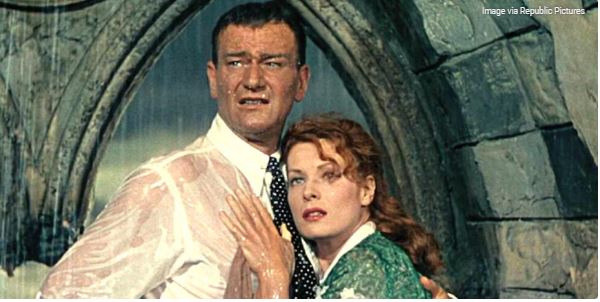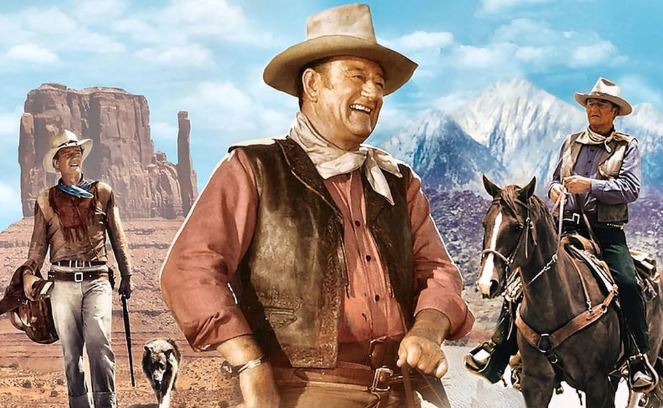When it comes to classic cinema, there are a slew of stars who immediately come to film fans’ minds as the greatest of all time, but one name that stands out as a larger-than-life legend of the silver screen is, without question, John Wayne. Known for his iconic Westerns such as Stagecoach, The Searchers, and True Grit, Wayne captured the hearts of audiences with his natural charisma, heroic resilience and a steely glare that could speak louder than any words, making him one of the biggest box-office draws for three decades.
Like the majority of stars and filmmakers, the Duke had a personal love for movies and, in 1977, The People’s Almanac conducted a poll asking Wayne and other Oscar winners to list five movies in which they believed were the best of the best. Wayne’s selection is a testament to his versatile taste and worldly appreciation for the art of filmmaking, ultimately revealing an insightful glimpse into one of the most celebrated stars in American cinema history.
‘A Man for All Seasons’ (1966)

Directed by Fred Zinnemann
The British historical drama, A Man for All Seasons, is a flawless adaptation of Robert Bolt’s famous play which recounts the final years of Sir Thomas More, played by Paul Scofield, who was the Lord Chancellor of England during the reign of King Henry VIII (Robert Shaw) and one of the King’s closest confidants and friends. Moore finds himself at a difficult crossroads when he is asked by Henry to sign a letter requesting that the Pope annul the King’s marriage to Queen Catherine of Aragon. Despite his loyalty and friendship to Henry, Moore refuses to sign the letter and chooses to remain true to his faith and the Catholic Church, ultimately forming a conflicting wedge between himself and the King.
A Man for All Seasons earned immense praise from audiences and critics, becoming one of the best films of the year. The movie was universally commended for its stunning cinematography, director, Fred Zinnemann’s masterful direction, and the overall performances. Scofield, who played More in the West End stage premiere of the play, essentially dominates A Man for All Seasons with a tour de force performance. A Man for All Seasons ultimately swept the awards season by winning six Academy Awards, including Best Picture, Best Director, and Best Actor for Scofield, as well as winning all seven of its British Academy Film Awards nominations, which also included Best British Actor, Best British Film, and Best British Screenplay.
‘Gone With the Wind’ (1939)

Directed by Victor Fleming
Gone With the Wind is a monumental classic and epic historical drama based on the 1936 novel of the same name written by Margaret Mitchell and is considered to be one of the greatest movies ever made. Set against the backdrop of the American Civil War, Vivien Leigh stars as a strong-willed Southern Belle, Scarlett O’Hara, whose world is turned upside down when the man she loves, Ashley Wilkes (Leslie Howard), marries a kind-hearted woman (Olivia de Havilland), leading her on a relentless pursuit to win him back. As the war erupts and rips through the South, Scarlett manages to overcome strenuous odds with the help of her family and the cynical but charming Captain Rhett Butler (Clark Gable).
While some criticize the film for its glorifying depiction of slavery and focus on the Lost Cause of the Confederacy myth, Gone With the Wind is still a culturally significant film that is far from being a happily ever romance and embodies crucial and universal themes such as self-perseverance, morality, and female empowerment. Gone With the Wind was a major success and earned a slew of Academy Award nominations and went on to win eight of its competitive nominations, including Best Picture, Best Director, Best Actress for Leigh, and Best Supporting Actress for Hattie McDaniel, who made cinematic history as the first African American to win an Oscar.
‘The Four Horsemen of the Apocalypse’ (1921)

Directed by Rex Ingram
Considering Wayne got his start in silent films, it’s no surprise that one of the era’s classics, The Four Horsemen of the Apocalypse, made the Duke’s list. The silent war film stars Rudolph Valentino as a young man, Julio, who is part French and part German, and when his grandfather dies, he leaves his family in Argentina to live in Paris. Julio carves out a seemingly happy life in his new home, but when World War I arrives, he enlists to fight for France and finds himself face to face on the battlefield with his German relatives.
The Four Horsemen of the Apocalypse is an adaptation of the 1916 Spanish novel written by Vicente Blasco Ibáñez and is cited as one of the first anti-war films ever made. Valentino’s performance elevated him to infinite stardom and his image was soon associated with the Latin lover archetype, inevitably establishing himself as a swooning heartthrob of the silver screen. Aside from some minor criticism from German audiences and certain censorship boards, The Four Horsemen of the Apocalypse was met with overall positive reviews and, today, is viewed as a significant contribution to the early days and craft of classic cinema.
‘The Searchers’ (1956)

Directed by John Ford
Wayne stars in John Ford’s magnus opus, The Searchers, as a Civil War veteran, Ethan Edwards, who, after his family is brutally murdered by Native Americans, learns that his nieces are supposedly still alive and currently being held as prisoners. Edwards vows to bring his surviving family home and as he sets out into the dangerous wilderness, his desire for justice and revenge turns into an all-consuming obsession that poisons him to the very core.
Wayne’s performance as Edwards is easily one of the star’s finest and stands to be one of the Duke’s most compelling and unique roles. Ford masterfully plays off the star’s heroic on-screen image by visually conveying a Frontier hero, only to gradually reveal a lonely and cruel anti-hero of the unforgiving Wild West. Like most of Ford’s films, The Searchers was filmed on-location, both in Arizona and Utah, and features remarkable shots of desolate landscapes and vivid color, essentially capturing a marvelous display of natural beauty and tranquility that gives the film an authentic tone. The Searchers is regarded as one of the greatest Westerns of all time and, between the Duke’s emotionally complex performance and Ford’s ingenious direction and vision, it’s easy to see why it made the cut on Wayne’s list.
‘The Quiet Man’ (1952)

Directed by John Ford
The Quiet Man is a romantic comedy starring Wayne as a former boxer, Sean Thornton, who, after a tragic accident in the ring, promises never to fight again and moves back to his family’s homeland in Ireland, where he intends to start his life over with a clean slate. Shortly after arriving, Thornton meets Mary Kate (Maureen O’Hara) and the two immediately fall for each other, but when Mary Kate’s brother refuses to hand over her dowry, Thornton is forced to choose between keeping his word or losing his new bride.
John Ford delivers another masterpiece with The Quiet Man, which gives audiences a look into not only the director’s passion for his Irish heritage, but also his vast range as a filmmaker, proving that he’s a master of more than just the iconic Western. Throughout their careers, Wayne and O’Hara starred in several films together and their genuine life-long friendship made them one of the most beloved on-screen couples of Hollywood’s Golden Age. The Quiet Man showcases the stars’ uncanny chemistry and natural grace, both finding the perfect balance of humor and heart that is without a doubt the heart and soul of this Ford classic.
